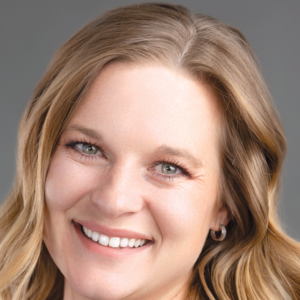While survey respondents in Yellowstone County indicate that they are doing more physical exercise and they believe their mental health remains good, if not better, a survey about the overall health of residents indicates there remains a need for more mental health services and that substance abuse is an escalating problem.
In fact, most aspects of the health of Yellowstone County residents have worsened since the last Yellowstone County Community Health Needs Assessment (CHNA), according to local health officials who reported, at a press conference, on the results of their most recent study.
Residents have trouble getting access to grocery stores in order to obtain healthy foods, which was identified as a reason for declines in healthy eating and over-weight issues. Also a contributing factor, according to the health experts, is a lack of trails and access to other options for physical exercise.
Being unable to access health care services is another detriment to good health, according to several speakers at the press conference, which included Yellowstone County Health Officer John Felton, Montana St. Vincent Healthcare President Jennifer Alderfer, Billings Clinic Interim CEO Clint Seger and Rehabilitation Hospital of Montana CEO Jennifer Graves.
There were positive trends reflected in the survey, including the fact that more people reported having health insurance.
The CHNA survey has been conducted every three years since 2006. The number of respondents to questions posed in the survey were 400, which County Health Officer Felton said is a statistically valid sample for a community of this size, generating a margin of error of less than five percent. For the first time the survey accommodated for “health disparities by race/ethnicity” by providing a web-based survey option “among historically underrepresented groups by partnering with Community Health Workers.”
The declining health issues are most problematic for the lower income and those of minority ethnicity. An Executive Summary provided by the presenters states that residents may experience worse health outcomes because of “Differences in income, educational attainment and quality, neighborhood quality, healthcare access, and social experiences…”
The Executive Summary focused on “perceived discrimination” by residents of Yellowstone County toward groups in deference to race, age, gender, sexual orientation, etc. as a significant contributing factor to poor health. Calling the results “sobering,” the summary stated, “19% of residents strongly agree that Yellowstone County is welcoming to all races and ethnicities.” It also concluded, “People of color are significantly more likely than the general population to report being treated with less courtesy or respect, as less intelligent, and as a potential danger, and receive poorer service.”
It’s a community problem, contended the speakers, who represent a collaboration of health care institutions in the county, often identified as The Alliance, through which numerous programs have been launched in the past, since 1994, to help mitigate priority needs in the community. The data that has been gathered will be used to identify priorities and to forge programs that will be carried forward in the community through the Healthy by Design Coalition.
The survey included questions regarding COVID -19 and the accompanying mandates and economic impacts. With businesses forced to close and quarantines keeping workers at home, 23 percent of county residents say they were financially impacted by lost employment, wages, hours, or health insurance. Because of the uncertainties many – 15 percent —said they avoided medical care.
Since the beginning of the pandemic, 22.6 percent of residents said a household member lost a job, hours, wages or health insurance. Other income or wealth issues emerged among 16 percent of respondents who said they worry each month about paying their rent or mortgage. And, also 16 percent said they do not have cash on hand to cover a $400 emergency expense.
Homelessness was also identified as negatively impacting health.
Part of the problems associated with increased mental health needs is associated with the “stigma” of mental health issues that keep people from talking about them – stigmas not associated with most other health care issues. Almost a fourth of the respondents said they have considered suicide at some point in their lifetime. In Yellowstone County, 26 people per 100,000 people commit suicide each year.
Substance abuse and safety are also contributing factors with 23 percent of residents drinking excessively and that worsening over time; 24 percent have experienced intimate partner violence, which is higher than the national average.
Deaths caused by unintentional injuries in Yellowstone County have nearly doubled in the past decade.
It was also pointed out that 30 percent of resident have an unlocked firearm at home or in their vehicle, which was said to be higher than in 2020. Despite this, said the survey, 85 percent of the residents feel safe walking alone in their neighborhood.
The summary also quoted a “community leader,” who stated that “Billings is Montana’s largest city and has the largest health care providers. Healthcare drives the Billings economy. Yet, Billings has a very hard time recruiting and retaining physicians. We must ask why. The community needs to change, or this problem will continue and will become a larger problem. Over the last three years, I have seen five doctors, four of them left Billings.”
The priorities of Yellowstone County were described as “areas of opportunity,” and include mental health support, services for substance misuse and safety (which includes falls, vehicle accidents and overdoses), better access to healthcare, and more physical activity and healthier eating. Health community leaders will analyze the priorities during 2023 to develop the next Community Health Implementation Plan.
Among other quotes in the summary reflecting various points of view were:
— “Chronic health issues are among the top 3 root causes of homelessness locally, according to a 2020 analysis by the Continuum of Care. This problem as a public health issue was exemplified by COVID-19.” –Social Service Provider
— “Billings is a small community. It is hard to form healthy relationships in the recovery process. There is a lack of services to meet the need. There is a lack of workforce to meet the need. Consuming alcohol is too culturally acceptable in Montana.” – Community Leader
—A large number of fast food or quick food restaurants are prevalent in the community. Affordable family style restaurants are limited, especially in the Heights. There are a lot of trails but not all connected. Limited option for non-trail walking exercise, such as Indoor pools, Frisbee golf, pickle ball, ice skating, and safe bike paths are limited. Free nutrition counseling would help as many do not want to pursue fad diets but would like inexpensive non-stigmatizing help.” – Public Health Representative.




